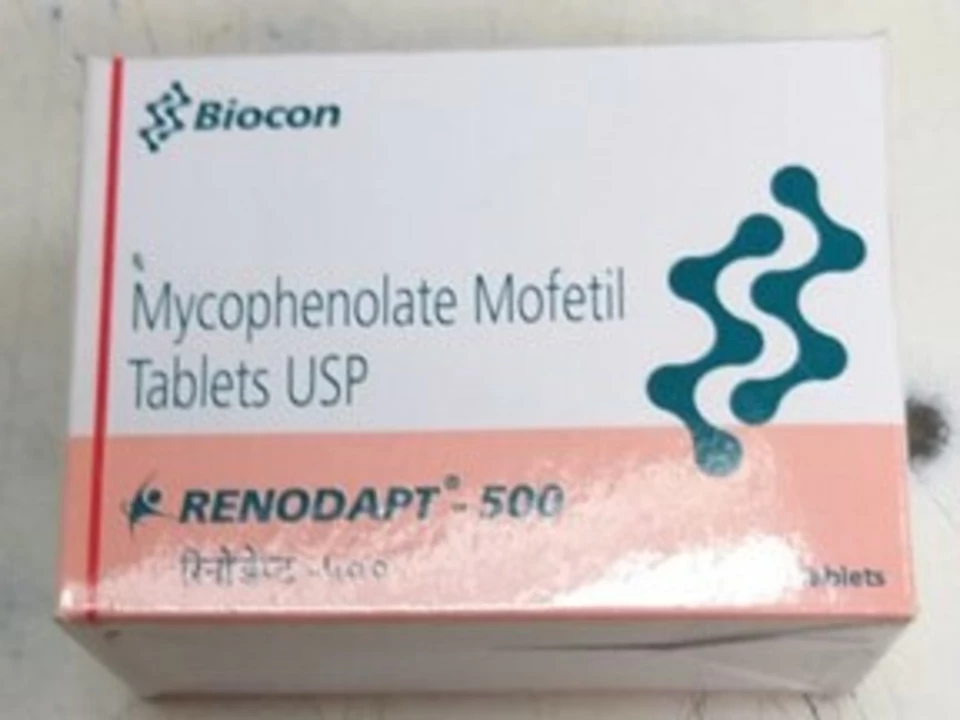If your doctor prescribed mycophenolate mofetil (MMF), you probably want clear, practical advice. MMF is an immunosuppressant used mainly to prevent organ rejection after transplant and to treat certain autoimmune conditions. It lowers the activity of your immune system so it can stop attacking the organ or tissue.
MMF converts in the body to mycophenolic acid, which blocks a key enzyme immune cells need to multiply. That makes it useful after kidney, heart, or liver transplants and for autoimmune diseases like lupus or severe inflammatory skin conditions. Doctors often pair MMF with other meds such as tacrolimus or prednisone.
Typical adult doses are 500–1,000 mg twice daily, but your doctor will pick the exact dose for you. Don’t change brands or stop the drug suddenly without medical advice — that raises rejection or flare risk. Expect regular blood tests: complete blood count to watch white cells, basic metabolic panels, and sometimes liver tests. Early on, checks may be weekly, then spaced out if things are stable.
Missed a dose? Take it as soon as you remember unless it’s almost time for the next dose. Don’t double up. If you’re vomiting or can’t keep pills down, contact your clinic — they may advise alternate plans.
Take MMF on an empty stomach if your provider recommends it, but if it causes nausea, taking with a light meal can help. Avoid taking antacids or bile acid resins (like cholestyramine) at the same time — they can reduce how much drug your body absorbs. Separate them by a few hours.
Vaccines: avoid live vaccines while on MMF and for some time after stopping. Inactivated vaccines are usually okay but may be less effective. Check with your provider about timing.
Pregnancy and birth control: MMF can cause serious birth defects and pregnancy loss. Women of childbearing potential must use reliable contraception and have a negative pregnancy test before starting. Men should also discuss fathering plans with their doctor. If pregnancy occurs while taking MMF, contact your healthcare team right away.
Common side effects include stomach pain, diarrhea, nausea, and low white blood cell counts. More serious risks are severe infections and blood problems. If you have fever, new persistent cough, severe diarrhea, or unexplained bruising, seek medical care promptly.
Buying and saving tips: MMF is prescription-only. Use licensed pharmacies and require a valid prescription. Generics are widely available and cheaper than brand-name CellCept, but don’t swap formulations without checking the dose equivalence with your doctor. Compare prices, check for coupon programs, and confirm the pharmacy has a licensed pharmacist and clear contact details.
Questions to ask your prescriber: why MMF for my condition, which dose fits me, what labs will we check and how often, and what contraception measures are needed. Don’t hesitate to call your clinic if side effects start or if you’re thinking of changing pharmacies or brands.
MMF is powerful and effective when used correctly. Stay on top of labs, follow safety rules—especially around pregnancy and infections—and work with a trusted pharmacy for the best results.

As a psoriasis patient, I can't help but share the benefits I've experienced since starting mycophenolate mofetil treatment. First and foremost, I've noticed a significant reduction in the severity of my symptoms, such as itching and redness. Additionally, the frequency of flare-ups has also decreased, allowing me to enjoy a more comfortable and normal life. My confidence has improved as well, thanks to the clearer skin I now have. Overall, mycophenolate mofetil has been a game-changer in my battle against psoriasis, and I highly recommend it to others who struggle with this condition.
CONTINUE READING